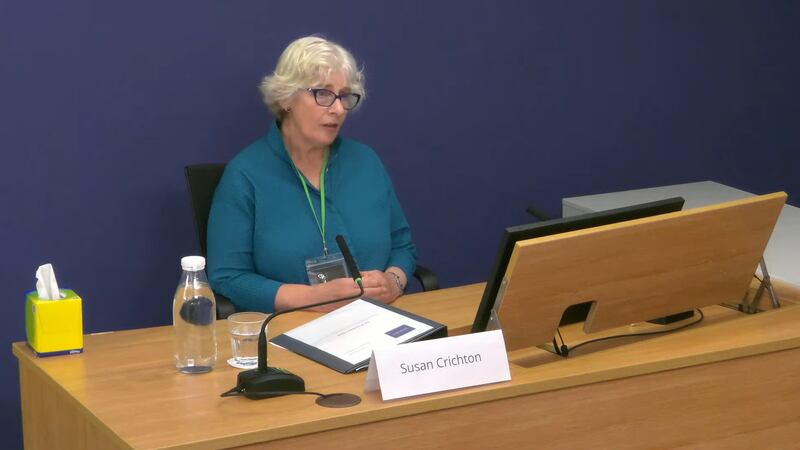What it means to be Irish might be changing, but Catholicism should still have a role in shaping Ireland's identity and soul in the 21st century, writes Fr Oliver Rafferty
HISTORIANS, literary critics and sociologists have in recent years given much attention to questions of identity formation as a paradigm for explaining how peoples and nations function geographically, politically, religiously and in terms of social cohesion.
Often, however, attempts at drawing the contours of ethnic, cultural or political identity are the product of constructed myths as well as historical realities.
Such a phenomenon gives rise to what has been described as 'historico-mythic consciousness' where nations, and groups within nations, narrate an understanding of themselves which although conforming to their sense of identity may not necessarily be an accurate reflection of the historical evolution of that particular group or nation.
Equally the 'myth' may more truly represent the sense of identity than the reality of the historical experience itself. The influence, authority and role of the Catholic Church in shaping Irish consciousness are paramount as a template for understanding Ireland and the Irish historically.
But does it make sense to think in terms of a clear and distinct identity over time and is this sense of identity linked with a specific political and religious unity?
Is Irish identity simply a construction, an 'invented tradition', which is then read back into Irish history for purposes of nationalist and sectarian hegemony?
Of course it could be suggested that such a question could only arise actually and historically in Ireland in circumstances where the hegemony of Catholicism was challenged as indeed it was in the 16th century.
But on the other hand, it could be argued that challenges to identity formation, were in many ways the norm in Ireland with successive waves of invaders becoming stakeholders in the culture culminating in the 12th century Norman invasion.
Clearly the Protestant Reformation and the Plantation ensured that Irish identity would be a complex phenomenon.
However, subsequent developments meant that the identification of Catholic and Irish was well in place by the time of partition.
Independent Ireland reflected the self-identity of the majority of its citizens in its Catholic social mores.
By the 1960s, however, social aspirations and economic improvements would cause cracks to appear in the too cosy coalescence between Irishness and Catholicism and indeed in the very definition of such identity.
This was further complicated by the re-emergence of political violence in the late 1960s.
When the Troubles broke out, bishops and priests repeatedly condemned and excoriated Republican paramilitaries as utterly unrepresentative of the Church and the Irish people.
There emerged the classic archetype of struggle between an authoritarian ecclesiastical hierarchy and a violent dissent group, most of whose members were, at least nominally, Catholic.
That struggle was not simply concerned with the morality of politically motivated violence, but was preoccupied with the question of what the Irish people actually stood for. Apart from the Troubles, and the recent financial meltdown, no greater trauma has afflicted Irish society and Irish identity than the crisis in Catholicism produced by the clerical abuse scandal.
Can we say that because of the scandal organised Catholicism in Ireland is now at an end? Will adherence to the Catholic faith no longer be regarded as an essential component in the way in which the majority of the Irish see themselves?
The decline in the Church's role in society is not simply in virtue of the abuses committed by wayward priests, and misjudged episcopal cover-up.
Ireland has not been immune from the growing secularisation that has swept the industrialised west since the 1960s, and perhaps for a good deal longer.
Some of the pressure originated within Catholicism itself and the forces for wide-sweeping change were unleashed, perhaps in an unforeseen way, by the Second Vatican Council.
The culture wars initiated by feminism in the late 1960s, the divisive referendums on abortion and divorce in the 1980s and 1990s, and the onslaughts of a 'liberal' media have all contributed to a weakening in the identification of Irishness with Catholicism.
The gradual process of secularisation, the dominance of Anglo-American culture, coupled with the virtual loss of independence owing to the financial crisis of the last few years mean that the Irish are less secure in their own identity than arguably at any time in their history. The fact that 10 per cent of those now living in the Republic of Ireland are immigrants will, in time, have perhaps quite profound implications for Irish identity.
The rapturous welcome given to Queen Elizabeth II in Dublin in 2011 - however important that event was in 'maturing' the relationship between Britain and Ireland - is itself a barometer of the transformation in the way the Irish see themselves in the early 21st century. The relative and continued success of the resolution of the northern conflict might sow the seeds of a new form of Irish identity - an identity that will not only have room for the two main cultural traditions, in their various guises, on the island of Ireland, but one that might have a continued role for Catholicism, however modified, in the ingredients that combine to constitute Irish identity and give shape to the Irish soul. n Oliver P. Rafferty SJ is editor of Irish Catholic Identities, published last month by Manchester University Press. The book examines what it means to be Irish and asks if being Catholic and Irish are "so inextricably linked that it is impossible to have one and not the other".

